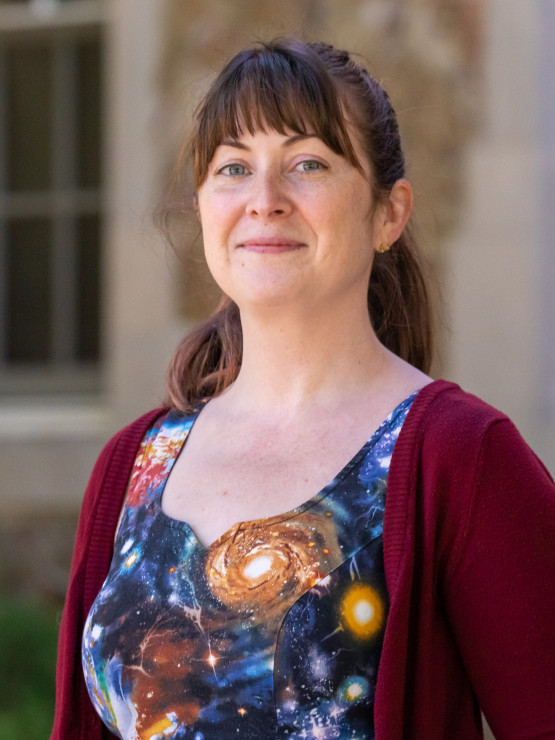Assistant Professor Lily Thompson Receives NSF CAREER Award, Largest NSF Grant In University History
 Assistant Professor Lily Thompson has received the prestigious Faculty Early Career Development (CAREER) Award from the National Science Foundation (NSF), the foundation’s most distinguished honor for early-career faculty members.
Assistant Professor Lily Thompson has received the prestigious Faculty Early Career Development (CAREER) Award from the National Science Foundation (NSF), the foundation’s most distinguished honor for early-career faculty members.
Thompson is an assistant professor of geology in the Department of Earth and Environmental Systems at the University. She will receive $619,867 over five years from NSF’s Division of Earth Sciences, making this the largest NSF grant to be awarded to the University of the South in its history.
The CAREER Award is designed to support promising young faculty members who exemplify the role of teacher-scholar through the combination of outstanding research and education. This highly competitive award is given to researchers who have the potential to serve as academic role models in research and education and to lead advances in the mission of their department or organization. This is the first-ever CAREER Award given to a Sewanee faculty member.
Thompson and her undergraduate researchers study the properties of geological materials at the elevated pressure and temperature conditions of planetary interiors. She employs techniques from chemistry, physics, and materials science to address mineralogical and petrological problems at extreme conditions. In this work, she combines experimental and computational approaches to study the constitution and evolution of planetary interiors, with a focus on the role of hydrogen in the Earth's interior.
With her CAREER Award, titled “The influence of cation substitution on the hydrous phases of the lower mantle,” Thompson will work to evaluate the stability and geophysical properties of hydrous phases believed to be stable at the conditions of the Earth’s lower mantle. Although these are expected to be minor phases, the potential for hydrogen storage in the lower mantle is still considerable, as it comprises approximately 56% of the Earth’s volume. High-pressure experiments and complementary theoretical calculations will provide detailed insights into the atomic-scale chemistry of these phases, helping explain how they remain stable at the extreme pressures and temperatures of the Earth’s deep interior.
Thompson’s project also includes an educational component, focused on developing a virtual reality (VR) application to help undergraduate geology students develop spatial reasoning skills while learning about crystal structures. This VR project was inspired by Thompson’s experience with aphantasia (an inability to create mental imagery), and is designed with the intent to foster equity and inclusion for neurodiverse students with visual-spatial deficits.
"I am greatly honored to receive this award," said Thompson. "This project will enable us to involve undergraduates in cutting-edge science aimed at resolving one of the biggest outstanding questions in Earth science: How much hydrogen is locked in the Earth's interior, and how has it influenced the planet's geophysical and geochemical evolution through time?"

